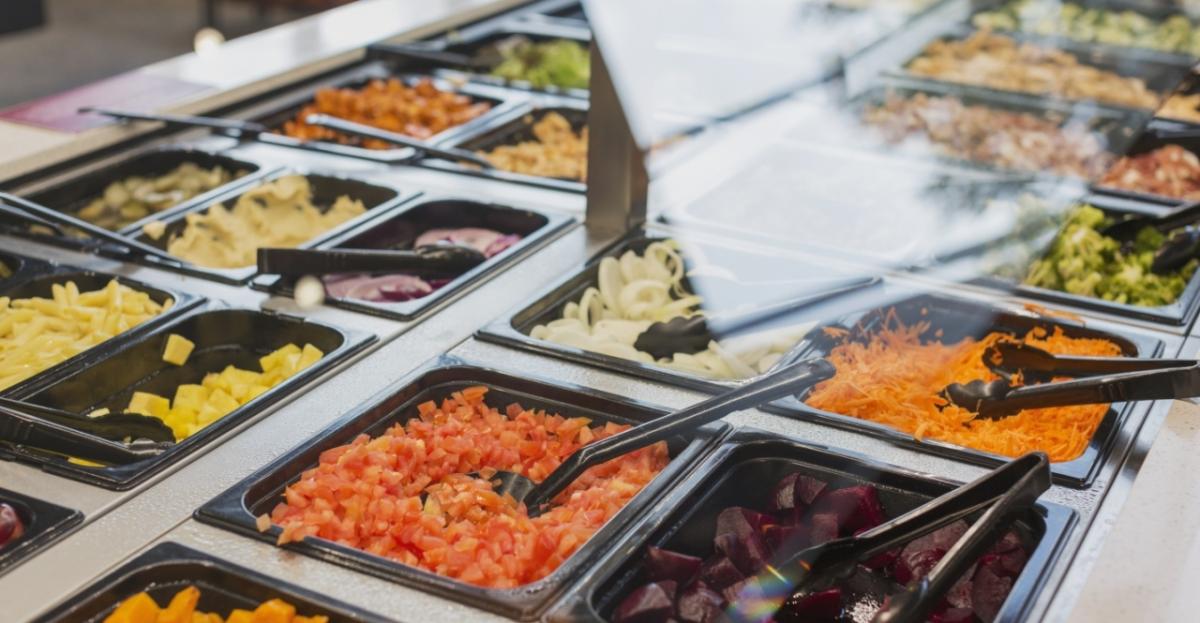Healthy Food Choices Are Also Good for the Planet
Symantec and Aramark work to support a sustainable food system

Originally published on Symantec Blog | Corporate Responsibility
By Aramark Executive Chef Robert Sapirman
Healthier soil and water, fewer greenhouse gases (GHG), less food waste, and better treatment of animals are all benefits of a sustainable food system. As governments, corporations, scientists, NGOs and others look at how to adequately feed nearly 10 billion people by 2050, many are also focused on achieving this in a manner that reduces pressure on the environment. Did you know:
- Agriculture accounts for roughly 10 percent of global GHG emissions, and as much as 50 percent of non-CO2 emissions.[i]
- Cows are the biggest culprit, contributing to over a third of non-CO2 emissions in Europe, the U.S. and India, and over half in Australia and Brazil.[ii]
- Roughly one third of the food produced in the world for human consumption every year — approximately 1.3 billion tons — gets lost or wasted.[iii]
- 300 million barrels of oil are used each year to produce food that is wasted.[iv]
Supporting a sustainable food system
Our daily decisions about what we eat impact our environment, and food is one area where we each have the power to effect change. As Aramark Executive Chef in Symantec’s Mountain View café, it’s my job to feed roughly 1,000 people each day. At Aramark, we believe the consumer sets the table, so menus are developed using proprietary research and consumer insights. Our research shows people today are more knowledgeable than ever, in issues relating to health and wellness, and ethical wellbeing, and therefore more demanding of companies, to align with their concerns. This extends to the humane treatment of animals, local purchasing, and responsible sourcing.
Our vendors know that Aramark and Symantec believe in responsible sourcing. They know we’re proud to purchase local, buy cage-free eggs and sustainable seafood, and to support the small farmers doing things right. At Aramark, we’ve committed to purchasing 100 percent sustainably sourced seafood by the end of 2018 and will serve 100 percent cage-free eggs in the U.S. by 2020.
Less Meat = Less Heat
As part of Symantec’s “Going Green in 2018” campaign, the café will host its first Less Meat Monday on Monday, October 8 in Mountain View, Culver City, and Dublin, where we will have enhanced meatless choices available in our cafes. “Going Green in 2018” is a yearlong campaign of eco-friendly awareness, challenges, and initiatives, designed to encourage Symantec employees to take action, and help protect the world. For the month of October, our focus will be on making sustainable food choices.
Meatless Monday, started in 2003, promotes healthy food choices that are also good for the planet. The UN Food and Agriculture Organization (FAO) found that global livestock production creates more GHG emissions than the entire transportation sector, and John Hopkins research shows producing a single quarter pound burger requires 6,800 glasses of water.[iv] In fact, going meatless for just one day in the Mountain View cafeteria would avoid 2,500 pounds of GHG and 170,000 gallons of water.
The FAO advocates reduced consumption of animal products due to the high-energy requirements of livestock farming, GHG emissions produced from livestock, and biodiversity loss due to conversion of natural habitats to grass and feed crops. With this simple change, Symantec will reduce GHG emissions and show our diners how delicious plant-based proteins can be.
Further supporting this movement, Aramark’s proprietary plant-forward research suggests that consumers, primarily motivated by health, are shifting their eating habits toward more plant-forward foods, with 60% wanting to reduce their meat intake. As part of its Healthy for Life 20 By 20 commitment with the American Heart Association (AHA), Aramark is finding creative ways to include more fruits and vegetables into menus and introducing a range of plant-based recipes that center on foods including vegetables, whole grains, legumes and nuts.
Do Your Part
If you find yourself in Mountain View, Culver City, or Dublin please join our team for Less Meat Monday, and wherever you’re located, try these little things at home:
- Eat organic. A 20+ year side-by-side comparison trial study showed that organic agriculture can reduce carbon dioxide and slow climate change,[v] in addition to protecting soil and reducing the use of pesticides and artificial fertilizers.
- Eat locally and seasonally.Stop by a farmer’s market or check labels in stores to avoid the large amounts of non-renewable resources that go into food transport.
- Eat differently. Reduce meat consumption and increase your share of plant-based proteins.
- Eat your food! Cutting back on food waste could go a long way to reducing greenhouse gas.
[i]http://www.newfarm.org/depts/NFfield_trials/1003/carbonsequest_print.shtml
[iii]http://www.fao.org/save-food/resources/keyfindings/en/

